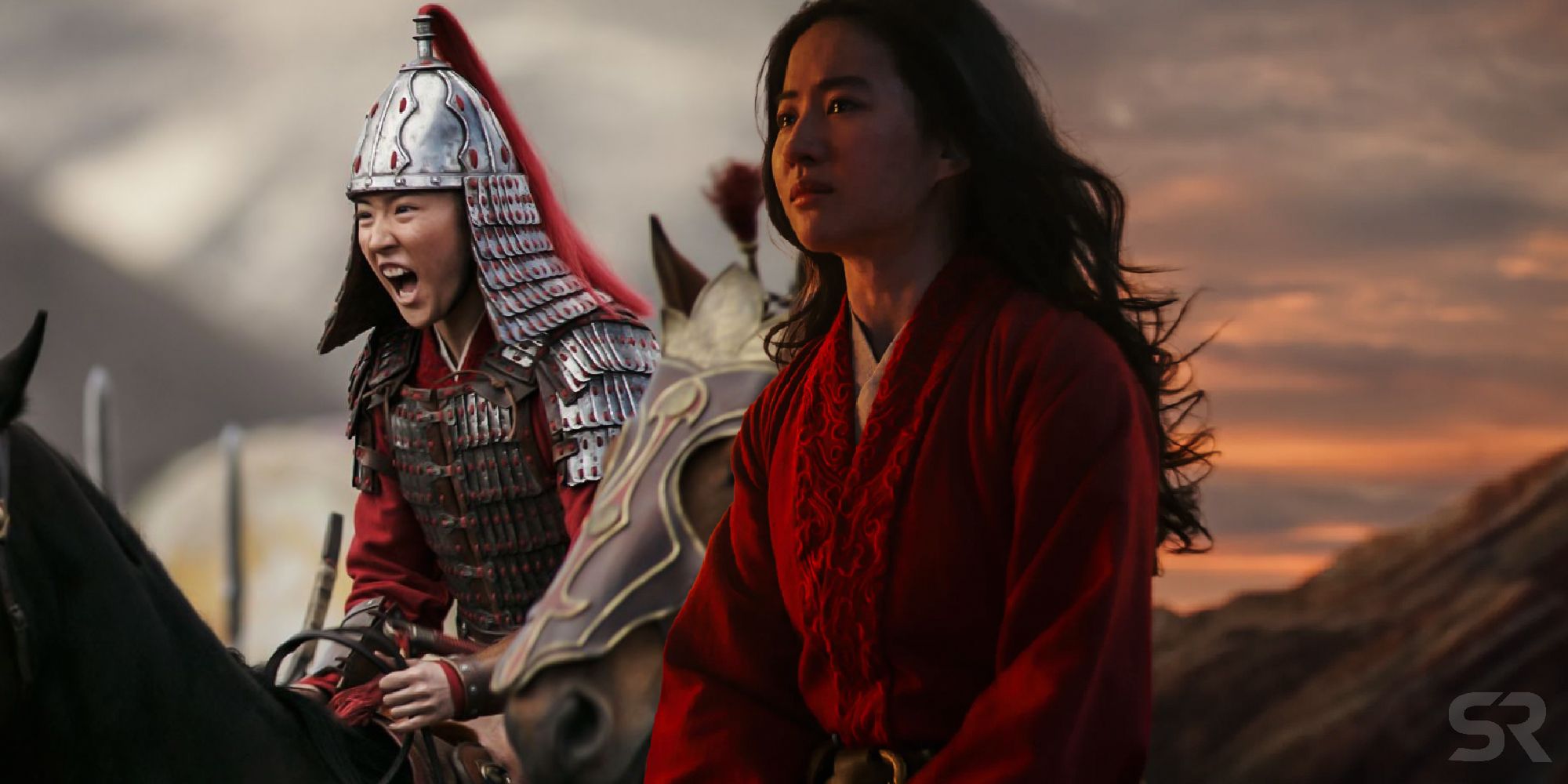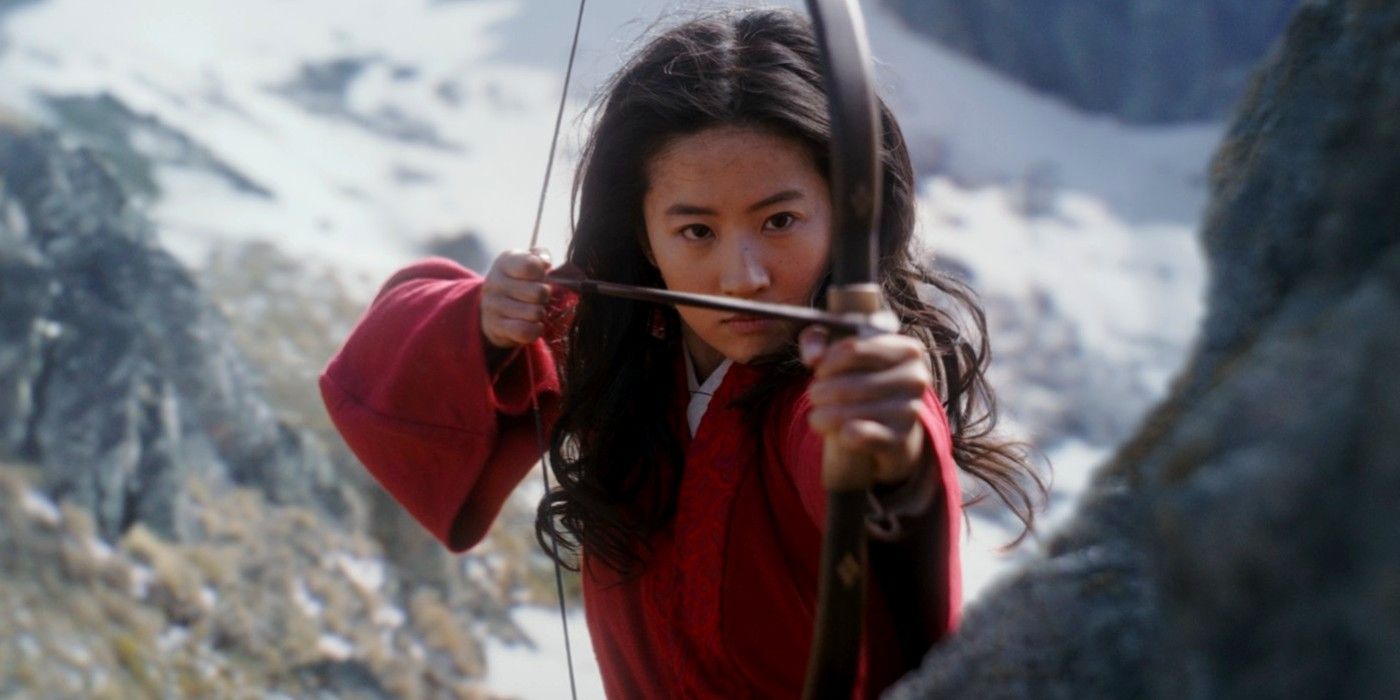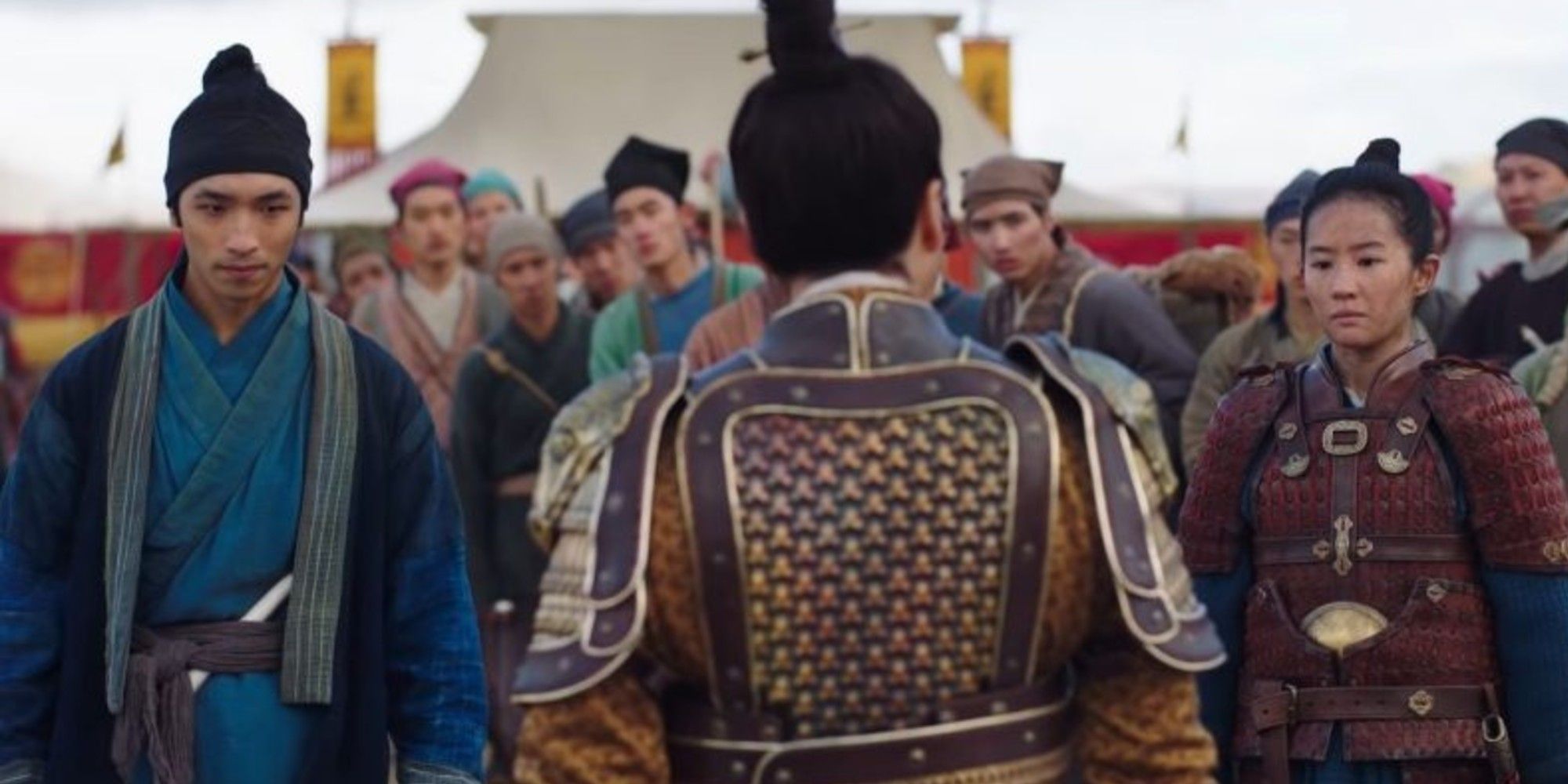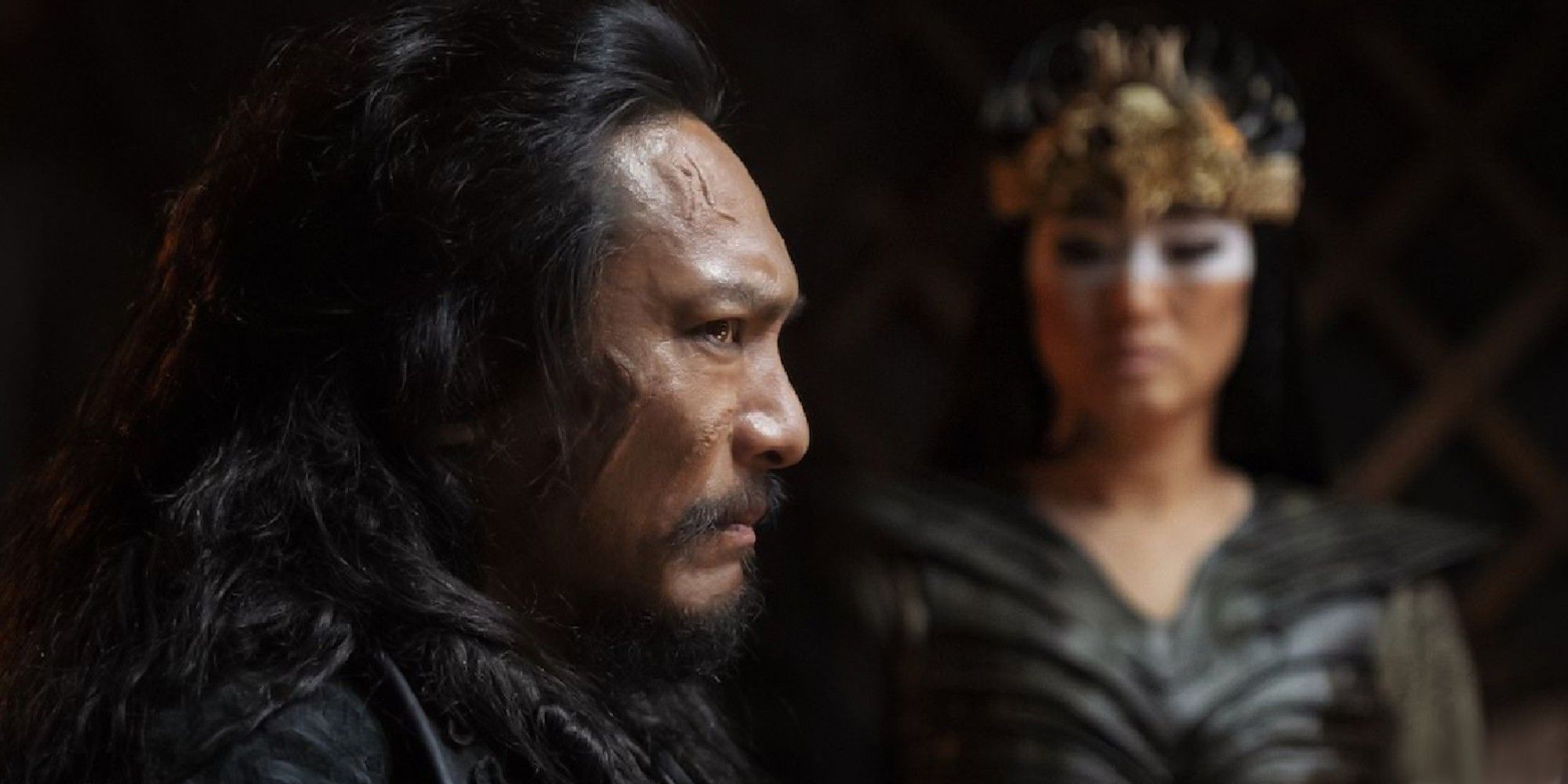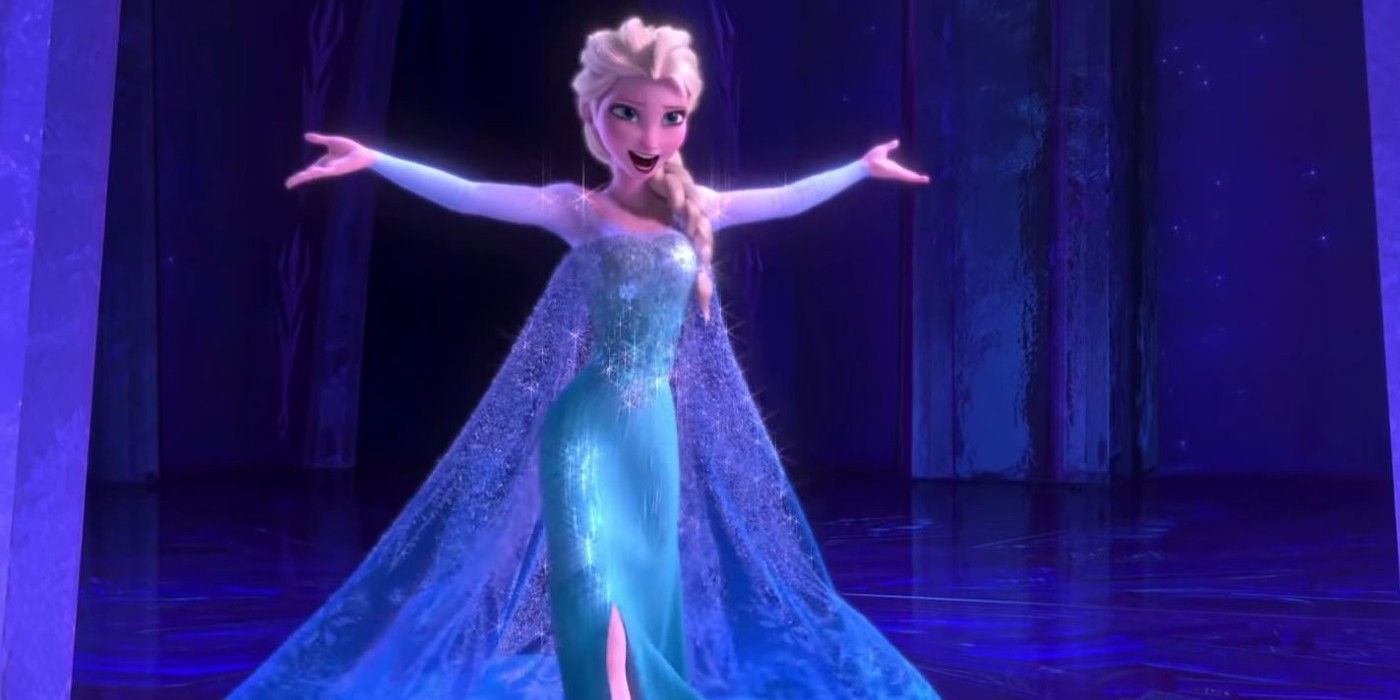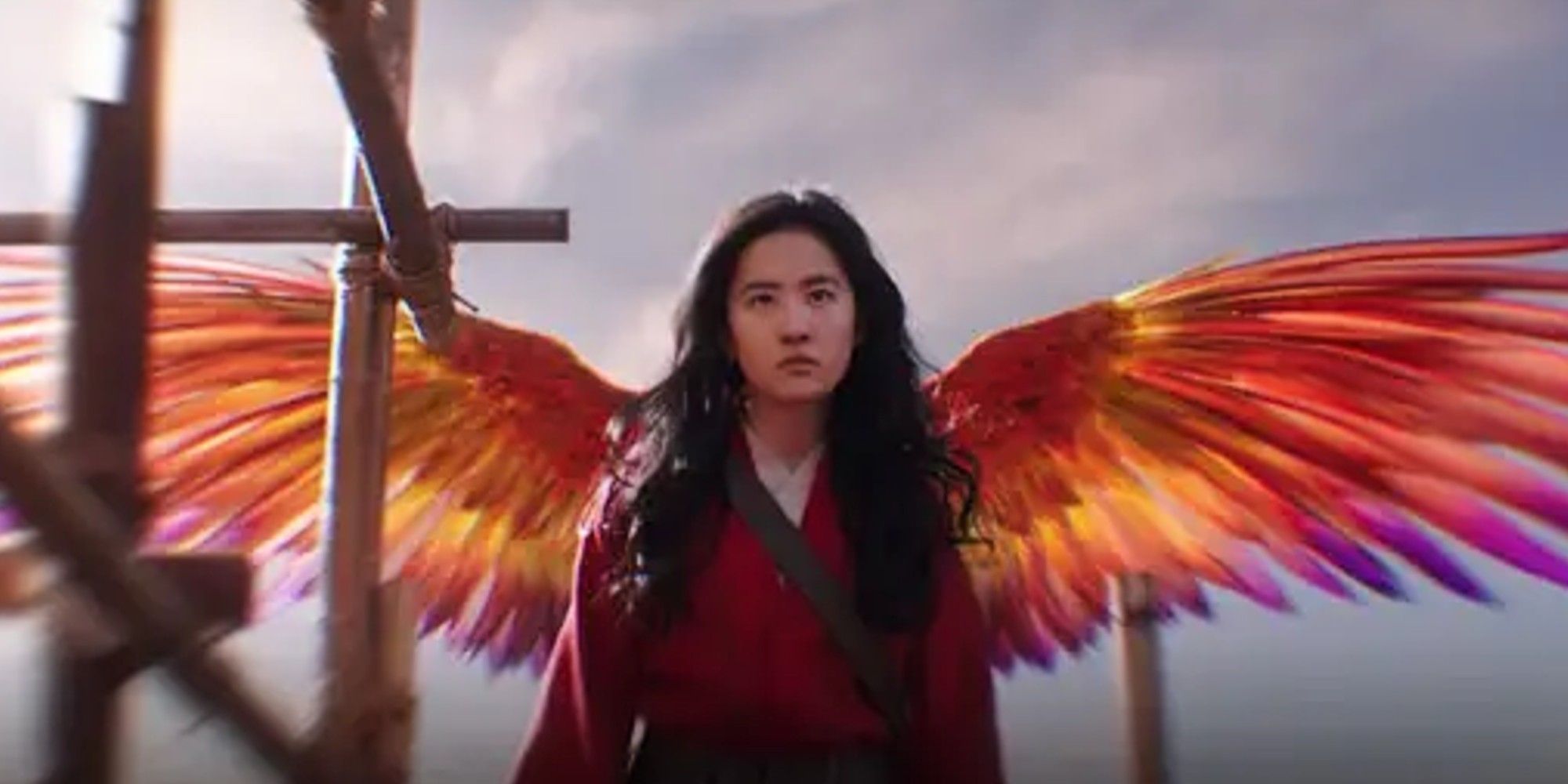Here's what the ending of Mulan 2020 really means. Disney's live-action remake of Mulan is a story of self-realization, but there is more to its meaning than the original animated adaptation of the 'Ballad of Mulan' and even of the ballad itself. Director Niki Caro has changed the story to be a more true adaptation of the Chinese legend but has also brought in some more recent Disney inspiration to craft a modern message into the story's ancient fabric.
As with the 1998 animated version, Mulan follows the titular hero as she takes her father's place in the Imperial army when conscripts are called for to defend from invaders. The villains, in this case, are different - Jason Scott Lee's Bori Khan, who is leading an army of the Empire's enemies and his cohort Xianniang, a powerful witch seemingly seeking revenge for her own mistreatment. The story plays out as in legend, with the hero defying expectations in a surprisingly violent tale (ensuring Mulan is not for kids) and saving Imperial China to great acclaim. Some elements of the animated classic - like a central romance - are included, but this is very much a new take on the story.
Aside from the traditional aspects, Mulan introduces some new ideas and translates the messages of other versions of the same story that came before. It is a mature take on the Mulan legend and one that changes the style to bring in wuxia influences and explores important ideas of self-worth, acceptance, and identity. Here's what it all really means.
How Mulan Adapts And Changes The Ballad Of Mulan
Disney+'s Mulan is not a straight adaptation of the original Ballad, even if it is far closer to it than the animated version. Both are great and can absolutely coexist, such is their difference, so a direct comparison of which version of Mulan is better is a little unfair. Both are based on the Ballad, fundamentally, but the new version (and the animated adaptation) change what the Ballad was about. The original is a tale of justified transgression: Mulan leaves her societally approved position, defies expectations of women, and fights to honor and protect her family and father, but then ultimately goes home to resume those duties. It is temporary, rather than a huge progressive shift, which is what the new Mulan suggests. Just as the animated classic challenged the message of the Ballad, so too does Caro's version. Mulan 2020 is not only about honor and sacrifice, it is about being true to yourself, which is a modern addition to the Hua Mulan story.
Mulan Finds Love (But Why It's Not Important)
In the animated version, Li Shang is introduced as a means for Mulan to defy the matchmaker's restrictive control of her. As well as defying the devaluation of feminine identities in that society by proving herself as useful to the Empire as any man, Mulan strikes out to control her own life by making a decision as fundamental as her relationship on her own too. The animated version is heavily tied to this romance as a means for Mulan to find herself, but in the 2020 version, it is pushed back. Li Shang is replaced by a fellow soldier on Mulan's level (so as not to introduce an inappropriate power dynamic) and the romantic subplot is played down to separate Mulan's self-realization from her romantic revelation. In Mulan 2020, the titular hero is less defined and validated by finding a partner and it is presented, justly, as a more incidental development, giving her more important revelations more space.
Mulan, Xianniang And Bori Khan Share Similar Backstories (For A Reason)
The decision to replace animated villain Shan Yu with newcomer Bori Khan was a controversial one, but it's a strong move as it adds more complexity to the narrative. Because, fundamentally, Bori Khan and his "sidekick" Xianniang are made more overt parallels to Mulan herself, rather than one-dimensional exotic monster tropes, which Shan Yu is. He was a hawk-eyed behemoth, intent on dominion without much beneath the surface, but Bori Khan and Xianniang are dark mirrors of the titular hero. They share her commitments to honor, family and self-worth, which is an important new dynamic.
Bori Khan leads a group of nomadic tribes who were ousted by the Empire and have justified reason to seek vengeance against Imperial China. His father was killed and he has a personal vendetta, but there's definitely a sense that his quest for restored honor through revenge is partly sympathetic, unlike that of Shan Yu. It's only because the audience is invited to side with the Empire that he's categorized the villain. And Xianniang is only a villain because she was ostracized for her supernatural Qi powers, which Mulan also possesses, crucially. She seeks a place where she is not considered an abomination and is willing to overturn the Emperor for that opportunity. In effect, she is a villain by circumstance and is a product of callous societal rejection.
Mulan And Frozen Share An Important Message
In Xianniang and Mulan's paralleled powers, there's a new dynamic to the Mulan story that follows the idea of self-worth and self-discovery introduced in Frozen and Frozen 2. From the very outset of the live-action remake, Mulan is told to conceal her powers so that she is not rejected as a witch, suggesting that any sort of deviation from the norm would be cause for banishment. That is the same as the fundamental anxiety that drives Elsa's story and while there are obvious differences (Frozen has a more loaded LGBTQ message, after all), Mulan defeating Bori Khan using her taboo powers is very much her "Let It Go" moment. Essentially, that message is that being true to yourself, no matter what that means to society, is more valuable than suppressing who you are to fit in.
The Real Meaning Of Mulan's Ending
Fundamentally, Mulan's ending is really about the danger of rejecting people for their difference. Xianniang's story is actually as important to the central message of Mulan as the hero herself. In the end, she defies expectations of women being somehow inferior (and thus better suited to restricted to the home environment), she rejects the idea of her being transgressive is somehow dangerous and she saves the Empire, just as she did in the 1998 animated Mulan. But in introducing Xianniang and the idea of Mulan's Qi "superpower", the dynamic of the ending shifts to focus more on Mulan's difference being key.
Part of the reason Mulan left animated character Mushu out (no matter how beloved the Eddie Murphy-voiced ancestral guardian was), was to replace him with the phoenix. In Chinese mythology, the phoenix is a symbol blending both male and female identities, which is key here, of course, but it is also more broadly a symbol of uniqueness. And that final moment in the fight against Bori Khan that shows Mulan and the phoenix almost becoming one to use her Qi powers to defeat the bad guy is very much that "Let It Go" moment. It isn't just that Mulan defies her difference to be victorious, it's that she uses it. In essence, Mulan's central message is that it is wrong to reject people - as Xianniang was - for perceived differences because they could be strengths.

